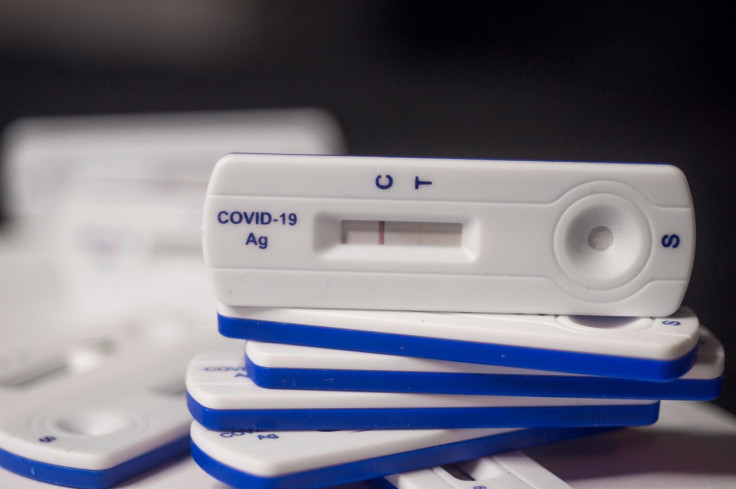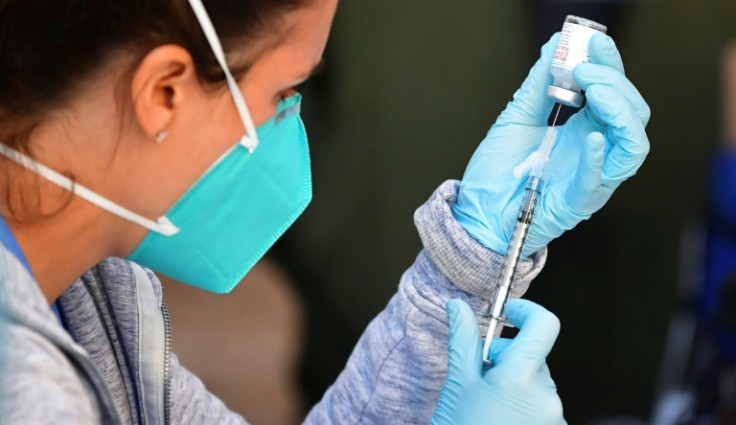Covid 'Frankenstein' Is On The Rise: 2025 Symptoms To Watch Out For As New Strain To Hit France The Worst
Stratus (XFG), nicknamed 'Frankenstein,' is rising in France with cases climbing since late summer

French health authorities are warning about a new Covid-19 strain, informally dubbed the 'Frankenstein' variant and officially known as Stratus (XFG). The variant has spread steadily since late summer and is expected to accelerate in the cooler months of autumn and winter.
Although most symptoms resemble earlier strains, doctors are observing shifts in how the virus presents and who it affects. Experts are urging the public to remain vigilant, particularly vulnerable groups, even as vaccines continue to offer protection against severe illness.
What Is the 'Frankenstein' Variant
Stratus is a recombinant strain formed from multiple earlier Covid lineages. It has been monitored by the World Health Organization since June 2025. French authorities report rising indicators since late August, including higher positivity rates, more consultations for suspected cases and an increase in emergency visits. Brittany and western regions are among the most affected, according to The Connexion.
While infections remain below the peaks of earlier waves, officials caution that a combination of increased transmissibility and waning immunity could produce a surge, especially among older adults and those with existing health conditions.
Symptoms to Watch
Doctors say many common symptoms are consistent with previous variants, including cough, sore throat, runny nose, fever, fatigue and headache. Loss of taste and smell, once a hallmark of Covid-19, is now rare.
What has changed is the profile of those seeking care. Emergency visits have risen by about 20 per cent among children and around 12 per cent in adults aged 15 to 74, though hospital admissions remain low. The variant has also shown signs of spreading earlier in colder regions and causing localised surges during summer, which experts note as unusual compared with earlier strains.
Although Stratus is not believed to cause more severe illness than recent variants, its ability to bypass some antibody protection raises concerns for people with weakened immunity.
Who Is Most at Risk
The groups facing the highest risk remain those over 80, immunocompromised individuals and people with chronic conditions. Health officials emphasise that children are appearing more frequently in the data, with more parents seeking consultations for suspected Covid. Serious illness in younger age groups remains uncommon, but doctors advise families to remain cautious.

Vaccination and Precautions
France's annual Covid-19 vaccination campaign begins on 14 October, coinciding with the flu jab rollout. Health experts are encouraging vulnerable groups to ensure they are fully up to date.
Public health authorities continue to recommend mask use in enclosed spaces during the colder months, when indoor transmission is more likely. They also advise testing and staying home if unwell to avoid spreading infection, particularly to elderly or vulnerable relatives.
Current vaccines are expected to remain effective against Stratus in preventing severe outcomes, although breakthrough cases are being reported. There is no evidence at present that the strain increases mortality compared with previous variants.
Crucial Few Months
The 'Frankenstein' variant is making its presence felt across France, with more consultations, higher case numbers and signs of spread into regions less affected by previous waves. While many symptoms remain familiar, subtle changes in presentation and transmission have led health experts to call for continued caution.
For most people, the risk of severe illness remains low. However, for vulnerable groups, keeping protection up to date through vaccination, avoiding crowded indoor settings and watching for symptoms remain key. As France heads into autumn and winter, health officials stress that vigilance will be essential.
© Copyright IBTimes 2025. All rights reserved.


















